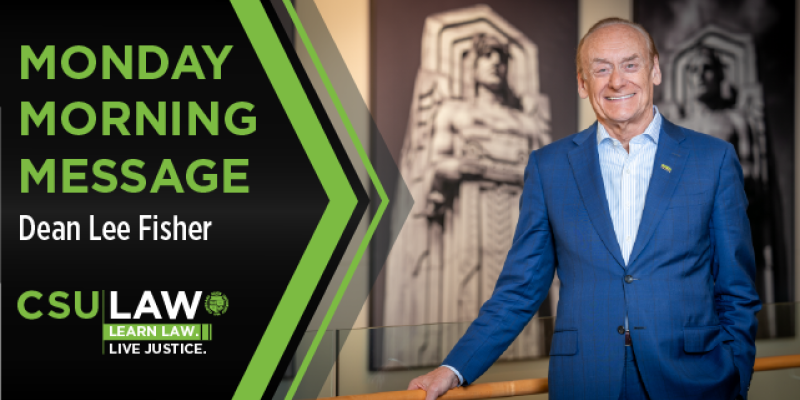
“This world is full of conflicts and full of things that cannot be reconciled, but there are moments when we can … reconcile and embrace the whole mess, and that’s what I mean by ‘Hallelujah.'” – Leonard Cohen (SNL's Kate McKinnon Sings Hallelujah)
On election night, no matter who you supported, most of us were surprised and many were shocked by the outcome. A number of students, staff, and faculty have told me they would like to better understand the outcome and implications of Donald Trump’s upset victory. That’s why we’re having an informal post-election brown bag discussion about the Presidential election this Wednesday, 12 noon at the law school. This, of course, is not a partisan session- it’s open to all our staff, students, and faculty, and it’s simply meant as an opportunity to share feelings and opinions in a respectful way. In the meantime, here’s my perspective.
It is particularly difficult for Clinton supporters to understand how so many good people could have supported President-elect Trump given how many people were offended by some of his language in the campaign. Yes, a number of Trump supporters cheered that language. But I believe that many, maybe even most, Trump supporters voted for him despite that language, not because of it. For them, there was something in his populist, anti-establishment message that was much more important to them that his behavior. Trump’s message was that their lives matter. Many Trump supporters wanted to send the same message that Howard Beale, in the 1976 movie, Network, sent when he yelled, "I'm mad as hell and I'm not going to take this anymore." It’s worth noting that a number of people who voted for Barack Obama in 2012 voted for Trump. Youngstown, where Obama won by more than 20 points in 2012, was basically a draw. A number of counties that supported Obama in 2012 voted for Trump by wide margins.
There are many reasons why a candidate wins or loses. The underlying political environment. The character and authenticity of the candidate. The clarity, focus, and resonance of the campaign message. The amount of money raised to convey and reinforce the message. The strategy and strength of the campaign organization. Last minute unexpected developments like a bombshell videotape or an unexpected letter from the FBI Director. To paraphrase H.L. Mencken, for every election outcome, there is an explanation that is simple, neat, and wrong.
But one thing is very clear. America is deeply divided. It’s too simplistic to label it as red vs. blue or liberal vs. conservative. We are divided along demographic and geographic fault lines- race, culture, gender, generation, education, income, and rural vs. urban. Too many Americans feel left out of the growing economic prosperity in many of our cities and metro regions. There is a growing disconnect between older, primarily working class, whites and our increasingly diverse and globalized country. For these Americans, a vote for Trump was aprimal scream not only for change but for political upheaval.
As Arthur Brooks, President of the American Enterprise Institute, has noted, “ Too many Americans have lost pride in themselves… nothing destroys dignity more than idleness and a sense of superfluousness—the feeling that one is simply not needed…. The U.S. is bifurcating into a nation of economic winners and losers, and this distinction is seeping into American culture. The dignity gap grows every time those who lose out start hearing, “We don’t need you anymore…..”
Rapidly accelerating technology and globalization, police shootings of people of color and murders of police officers, growing racial and cultural diversity–all these things have the capacity to unite us through hope, dignity, respect, and progress or to tear us further apart through anxiety, fear, bigotry, and scapegoating.
As I noted in last week’s Monday Morning Message before the election, our next President does not have a mandate to ignore, patronize, or stampede the political opposition in order to advance an agenda. But all of us do have a mandate to do a much better job of talking with and listening to each other across demographic, racial, and ideological lines. It helps to read what others think about the election.
Last week, our Moot Court Board of Governors hosted our annual Moot Court Night. Our distinguished judges were Justice William O'Neill ‘80, Ohio Supreme Court, Judge Karen Nelson Moore, United States Court of Appeals for the Sixth Circuit, and Judge Richard Markus, retired judge, Ohio Court of Appeals for the Eighth District. As I listened to students Brandon Brown, Robert Galinas, and Kelly Wallenfelsz brilliantly deliver their arguments, I was reminded that the best oral advocates are able to take a position with which they personally disagree. Moot Court requires our students to step outside the constraints of their own immediate, biased frames of reference. Many of us live in a bubble and unknowingly engage in “confirmation bias”–we search for or interpret information in a way that confirms our own preconceptions. We actively seek out and assign more weight to evidence that confirms our views, and ignore or under weigh evidence that contradicts our views.
As Steven Covey notes in The 7 Habits of Highly Effective People, we all would do well to “seek first to understand, then to be understood.”
Hallelujah.
Lee
Lee Fisher
Interim Dean and Visiting Professor of Law
216-687-2300
lee.fishernull@csuohio.nulledu
